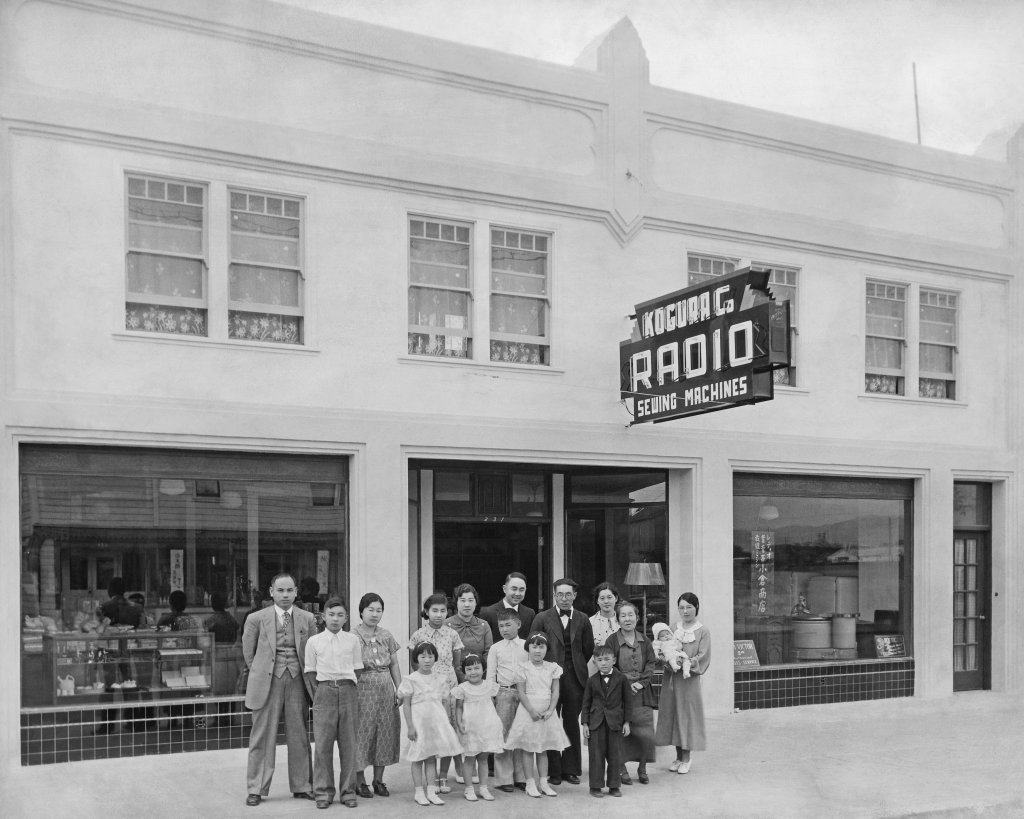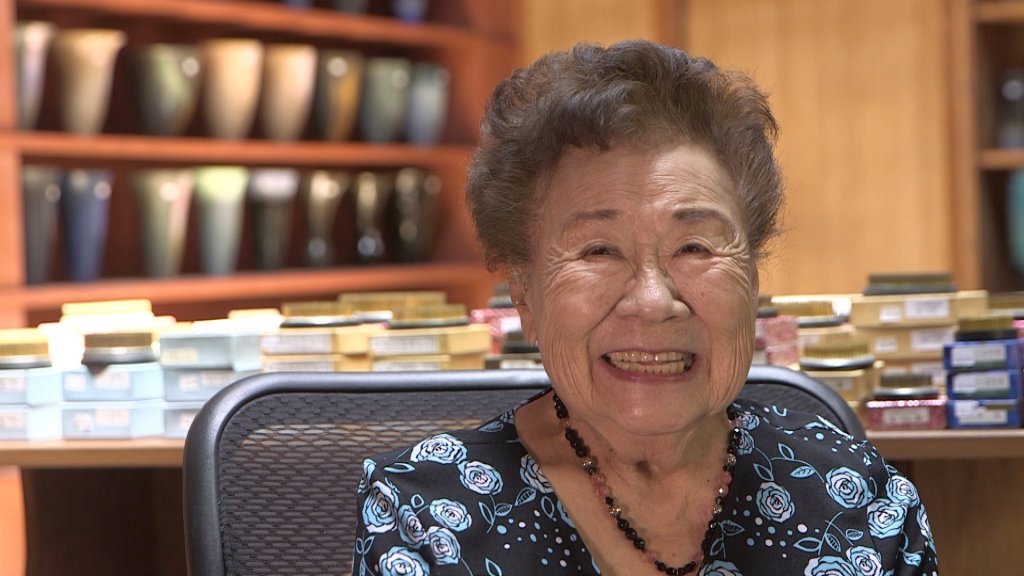San Jose's Kogura Company Surviving Time and Obstacles
If there is an elder statesman on Jackson Street in the heart of San Jose's Japantown, it's hands down the Kogura Company gift shop. It's occupied the same storefront since 1934 -- where Kohei Kogura moved it from its original 1928 location a few blocks away.
Not only does the shop boast the title of oldest store in San Jose's Japantown -- it's considered the oldest to occupy its original location in any Japantown in the U.S. Unlike the days when it supplied appliances to the Japanese community, these days its shelves are stocked with colorful Japanese vases, dolls, sake sets and rice cookers.
"It’s always sold Japanese products," said Richard Kogura, Kohei's grandson. "So I kind of look at the products here and it’s very similar to what grandpa Kogura sold."

You might say grandpa Kogura was on a slightly different wavelength in his time: In additional to selling household appliances, he was an official RCA dealer, peddling big wooden tube radios that served as the televisions of their day. Their magnet and wire speakers likely transmitted the news to Japanese families that their government intended to banish them to internment camps during World War II -- a cultural upheaval that's still felt across West Coast Japanese communities.
Local
During internment, the Koguras, and many Japanese families in the San Jose area had a guardian angel in the personage of San Jose attorney J.B. Peckham. He watched over the Kogura's property when the family was sent away to the camps. Richard Kogura believes he's ultimately the reason the store survived.
"That’s why after internment there was someplace to come back to," Kogura said.
Kogura Company may be the elder statesmen of Jackson Street, but Toshiko Kogura is the grande dame of Kogura Company. She married Kohei's son and has worked in the store since the 1960s. At 96, she still shows up to work and only gave-up driving a year ago. She was a daily fixture behind the counter until the pandemic ended her run.
"Ever since then I’ve been home -- like a jail," she groused. "Only went to see dentists, doctors and hairdressers if they were available."

Toshiko remembers a different clientele from her early days working in the shop -- back then there were many farmers and gardeners among the clientele, reflecting the days when San Jose's soil and orchards were the valley's main commodity, in lieu of silicon chips and computer screens.
She remembers her own family's journey to the internment camp, which she recalls without a trace of bitterness. She remembers it as a time when the tight-knit Japanese community became even tighter in its exile. She worked in the camp's Adult Education Department earning twenty dollars a month.
"You make the best of things," she said. "You meet a lot of young people you wouldn’t otherwise."
Richard Kogura and his sister Caroline Kogura are the third generation to run the store -- shepherding the family's legacy into modern times. They were at the helm when the pandemic forced the store to close in March of 2020 for the first extended period in its history, which lasted several months.
It would seem they inherited their mother's ability to make the best of things -- using the downtime to make long envisioned improvements to the store.
Perhaps the most significant update, was restoring the original sign that hung out front of the store. Below the title Kogura Company, it originally read "oriental arts." The family fretted over the offensive wording, and had it changed to "est. 1928."
"You make lemonade out of lemons," Richard said.
Of the recent rise in attacks on the Asian community, Richard was less apt to squeeze out many positives. Volunteer community guardians now walk Japantown's streets to protect people from assaults. Kogura sees parallels to his own family's battles against racism during World War II -- when it was ejected from its own community.
"What I think about is this must be nothing compared to what our first generation went through," Kogura said. "We think this is bad, this is nothing compared to what they endured."
The store's front window is currently occupied by a giant Sushi Shark by artist Doug Wright, a modern artifact that hints at the Kogura's loyalty to their hometown San Jose Sharks hockey team.
Next door, is Japantown's oldest building which the Koguras bought and plan to restore. Inside the gift shop, amid shelves where Hello Kitties sit in a perennial wave near traditional Japanese dolls, time seems to bob and weave through generations.
For Toshiko Kogura, the mix of cultural artifacts is a reminder of a winding journey through a city, a culture and a shopping public in constant flux.
"I think of the past," she said glimpsing around the store, "and think of how far we’ve come."
"time" - Google News
May 25, 2021 at 03:18PM
https://ift.tt/2TkI74x
San Jose's Kogura Company Surviving Time and Obstacles - NBC Bay Area
"time" - Google News
https://ift.tt/3f5iuuC
Shoes Man Tutorial
Pos News Update
Meme Update
Korean Entertainment News
Japan News Update
Bagikan Berita Ini
















0 Response to "San Jose's Kogura Company Surviving Time and Obstacles - NBC Bay Area"
Post a Comment